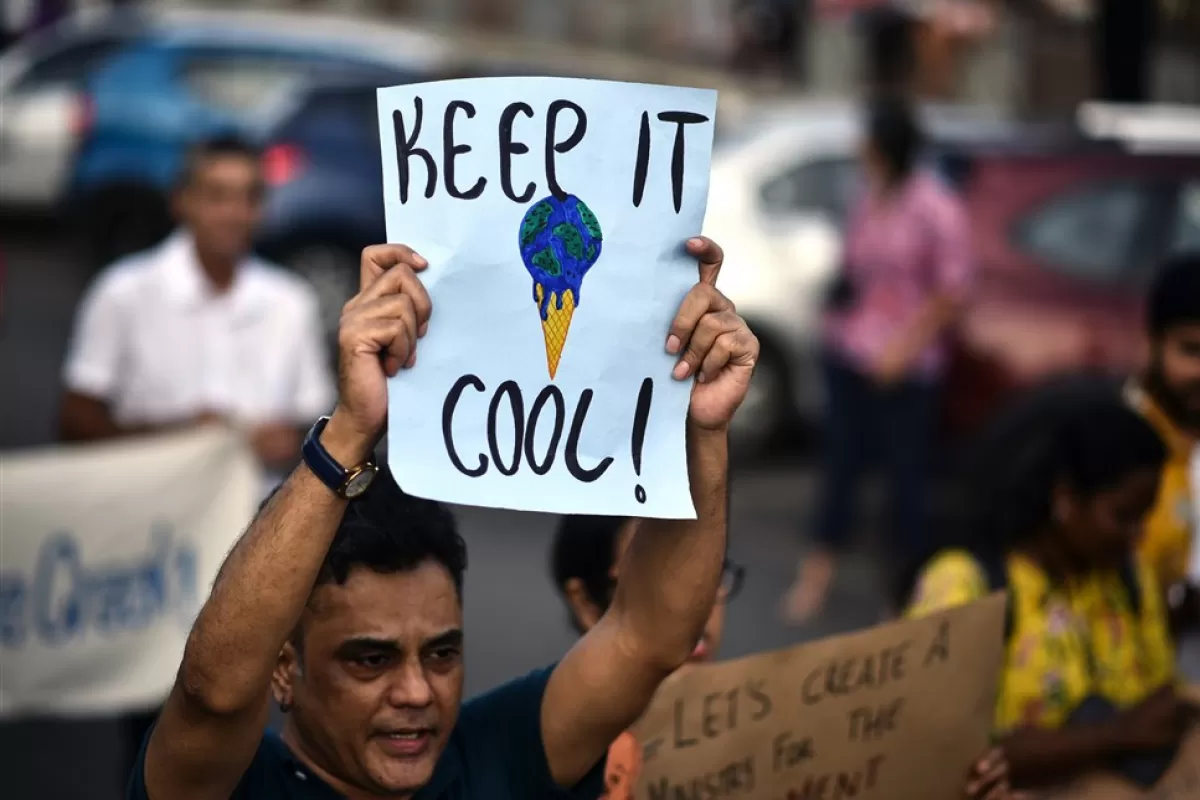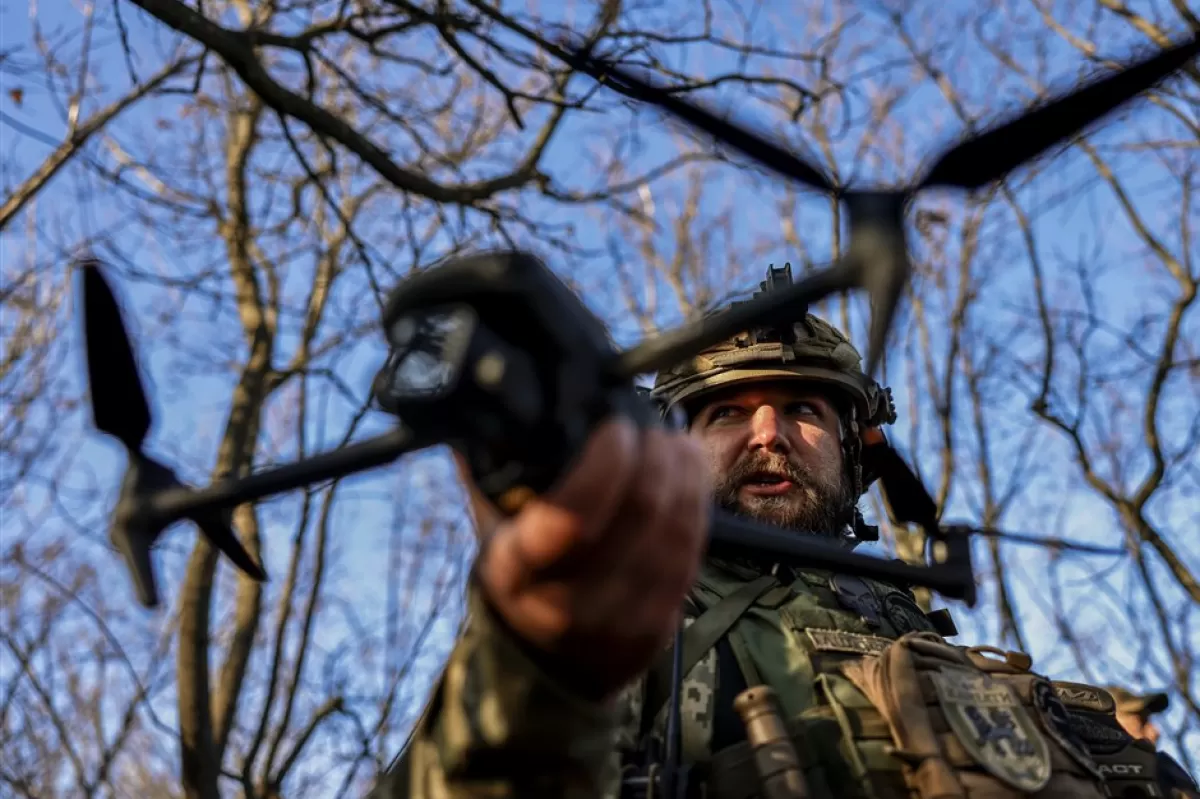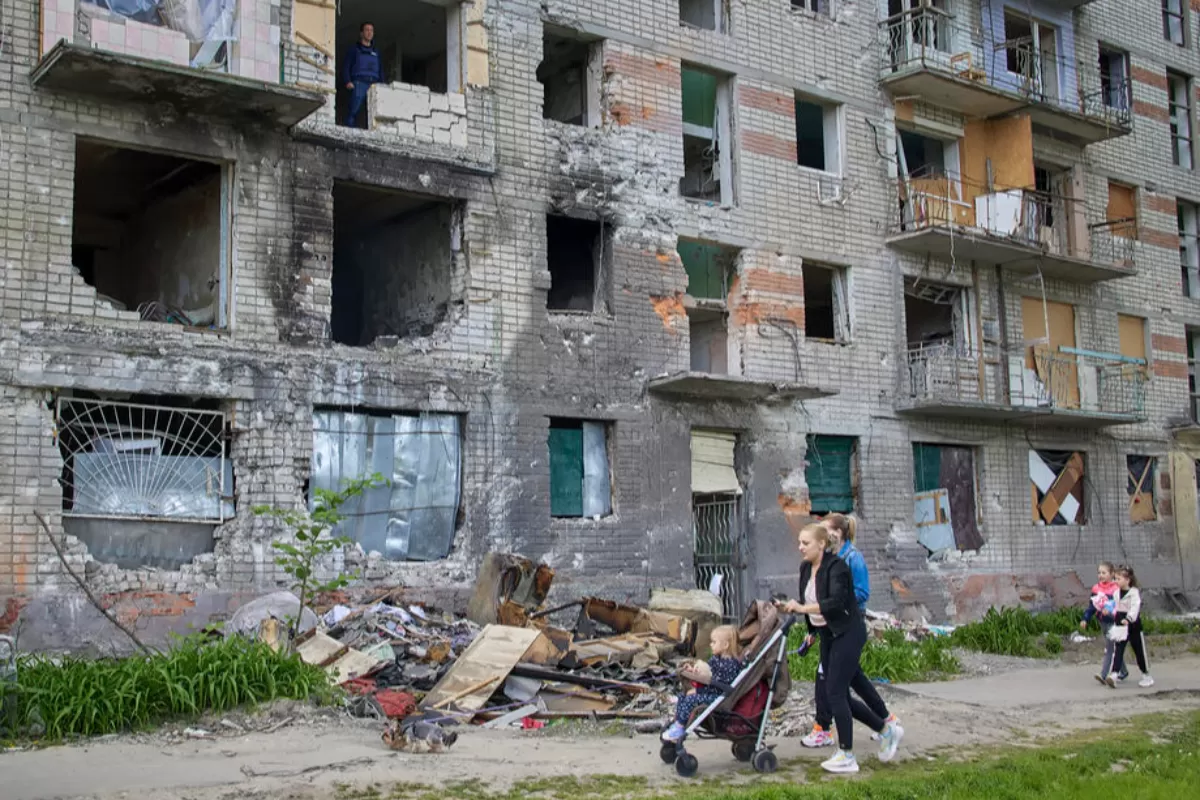
2023 showed how serious the climate change issue really is. Although efforts have been made to switch to green energies and reduce emissions, the crisis is far from being resolved.

The recent scandal at the OpenAI company has refueled fears about a potential apocalypse triggered by computers, although for the time being the threat seems anchored in the distant future.

The aggressiveness of Putin’s regime has been described as a trait of the Russian people. The same pseudo-scientific generalizations were also used to describe Nazi Germany.

Populist rhetoric defending “economic interests” and the real economic costs undermine the fight against climate change, fueling climate revisionism.

The heat records of 2023 will likely be broken in 2023, when the effects of the El Niño ocean warming phenomenon will be felt in full.

The record-high temperatures suggest global warming has picked up speed. It could be stopped by curtailing emissions, although other solutions are needed to cool down the Earth.

After earlier this summer, the federal government of Germany presented its new security strategy, Olaf Scholz’s Cabinet has now released a national strategy on China, which marks a new first for Berlin.

The war in Ukraine has prompted many NATO states to take action with a view to strengthening their armed forces. Instead of deterring the Allies, Putin only brought them closer together.

On May 28, Turks will decide whether to consolidate the regime of Recep Tayyip Erdoğan, the strongman of Turkey’s politics who has reigned unchallenged for the last 20 years, or to vote for Kemal Kiliçdaroğlu, seen as Turkey’s “Ghandi”, who fosters a return to old republican values.

US authorities have arrested and indicted a suspect in the leaked Pentagon documents investigation. There are however questions the public expect to be answered, from how a 21-year-old was allowed to upload top-secret documents online, to the nature of the data itself – are we truly looking at classified information, or is this an elaborate form of disinformation?

Donald Trump is the first former US president to be brought to court in a criminal investigation. How will the trial (and others that might follow) affect Trump’s political standing, given the ex-president has already announced his White House bid in 2024?

Carbon emissions, pollution and overfishing are putting the world's oceans at risk. They play a key role in maintaining the ecological balance of the Earth, but also in the global economy. Urgent measures to protect them and a better understanding of the phenomena that affect them are much needed.

Thousands of buildings collapsed in Turkey during the February 6 earthquake. This is not the first tragedy of this magnitude in the history of this country. While other countries in areas with a much higher degree of seismic activity have understood the importance of reducing seismic risk through strict regulations in the construction sector, Turkey seems to be always taken by surprise.

According to a document of the Russian Federal Guard Service, the agency is prepared to defend Vladimir Putin including with the help of hypnotists and priests. The existence of a parapsychological defence plan may seem bizarre, but a penchant for mysticism and the paranormal is not uncommon in Russia. Over time, the elites and even the state have turned to unconventional helpers, such as Rasputin, KGB parapsychologists or the FSB general who said he can read minds.

Efforts to combat climate change have had mixed results in 2022, which are best described by the saying “one step forward, two steps back"”. While governments are still slow in taking decisive action, the effects of climate change are already being felt. To diminish their impact and magnitude, there is an urgent need for the United States and China to agree in 2023 to combat them.

Originally developed as surveillance aircraft, unmanned aerial vehicles (UAVs) – commonly known as drones – underwent a number of transformations, from aircraft used to carry out tactical airstrikes to weapons included in the arsenal of modern warfare, the same as artillery and aviation. Drones play a key role in the war in Ukraine as well, where in recent weeks they have been primarily used as instruments of terror.

Alex Jones, one of the best known American conspiracy theorists, was sentenced to pay nearly 1 billion USD after claiming for years the Sandy Hook Elementary School shooting never actually took place and was actually staged. The sentence represents a landmark for combating the increasingly toxic phenomenon of fake news. The battle might have been won, but the war wages on.

Pakistan has recently faced one of the biggest natural disasters in the country’s history. Tens of millions of people were affected by the far-reaching floods caused by the massive rainfall reported in this year’s monsoon season. Islamabad claims the intensity of this disaster is a result of climate change. This launches a new warning against the devastating effects of this phenomenon.

Europe is facing the most severe drought in the last 500 years, but it is not the only continent affected by this phenomenon. The global scale of drought is yet another consequence of climate change. Water – the element that is vital for survival and key to industry and agriculture – has become increasingly disputed globally, its shortage producing economic, humanitarian and security crises.

The war in Ukraine brought back into focus an issue that had been known for a long time: Europe’s dependence on Russian gas. First, the possibility of European sanctions was raised, then Moscow reduced supplies, which caused panic in some Western capitals. What can Europeans do to escape Russian blackmail and how much should they fear the coming winter?

The chess rivalry between Russia and Ukraine existed before the invasion of February 2022. It also existed before the first invasion of Russia in February 2014. It existed, one might say, before the collapse of the Soviet Union in December 1991. But it has never been harsher than this year. The world of chess has once again become, as it was during the Cold War, a battleground for image, influence and power.

The war in Ukraine is but the latest conflict at the start of a century that turned out to be rather impetuous, from the Middle East and Africa to the Caucasus, Central Asia and the Far East. It broke out just as mankind breathed a sigh of relief, acting as if the (coronavirus) pandemic was over, while others fear the new pandemic is already here. Will wars and pandemics become the “new normal” for the human race?

Europe’s reliance on large energy imports from Russia prevents the adoption of sanctions meant to deprive Moscow of sizable revenues, which it can use to feed its war machine. The West is looking for replacements, but unfortunately these are more often than not “smaller Russias” – authoritarian regimes that also stand accused of violating human rights.

The war in Ukraine has pushed into the background the main threat facing humanity: climate change. On the other hand, it has become clear that energy dependence on Russia needs to be eliminated, which could lead to accelerated efforts to switch to alternative sources of energy.

The coronavirus pandemic has been accompanied by a wave of fake news, disinformation and conspiracy theories. As the end of it is drawing to a near, conspiracy theorists and deniers will focus on a new goal: climate change.

Despite repeated warnings that we’re approaching the point of no return for averting a future catastrophic global warning event, not even those countries bent on combating climate change can reach consensus on exactly what steps should be taken. Meanwhile, adding to manmade greenhouse gas emissions are those generated by global warming itself.

The game for the world chess title has a special stake for Moscow. Like the USSR before it, Putin's Russia is obsessed with success at all costs in the chess arena - both on the board itself and within the International Chess Federation.

The summit on climate change, COP26, brings no breaking news: we already know that a critical point has been reached. However, just knowing it doesn't help. We need urgent measures and policies that can no longer be postponed if we want to give future generations a chance.

Since Lenin, many communist leaders have tried to play and promote chess. Most of the time, these leaders were pathetic players, who were not able to face a tournament of medium and even amateur level; except, perhaps, for one organized only among themselves, an event which, however, never took place, despite the socialist friendship between their peoples. But that did not stop the same communist leaders from turning chess into a powerful propaganda tool during the Cold War. And in this respect, the Soviets were indeed champions.

There is a discrepancy between the Western estimates, according to which there were hundreds of thousands of rape victims, and the Russian ones, where figures are in the order of tens. But let’s see the arguments of each side of the dispute.